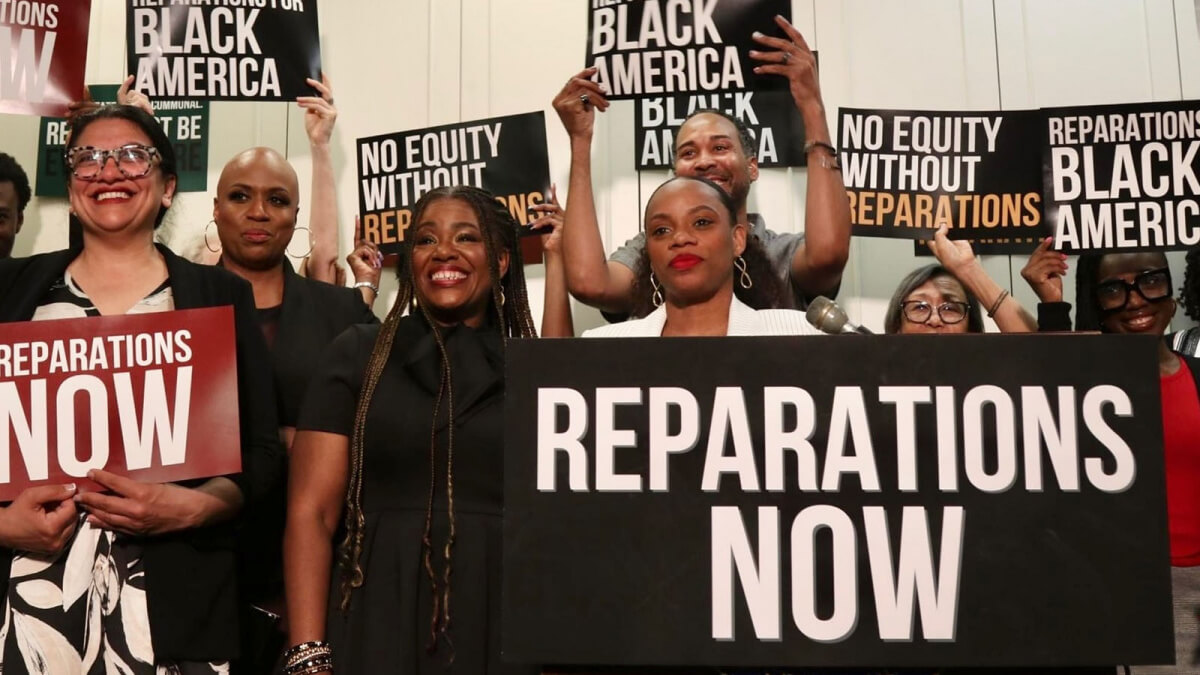In a move that has reignited national debates surrounding race, history, and justice, Pennsylvania Congresswoman Summer Lee has introduced a resolution calling for trillions in taxpayer-funded reparations. The freshman lawmaker, associated with the progressive wing of the Democratic Party, argues that the United States bears a "moral and legal obligation" to compensate for historical injustices, specifically those tied to the era of Jim Crow laws.
Dubbed the "Reparations Now Resolution," Rep. Lee's legislation proposes substantial financial redress aimed at the African American community. Speaking with conviction, Lee expressed her determination to reshape society in an equitable direction, criticizing former President Donald Trump for dismantling federal diversity, equity, and inclusion (DEI) policies.
The resolution was put forward as a part of a concerted effort by left-leaning members of Congress, including Sen. Cory Booker (D-NJ), Rep. Ayanna Pressley (D-MA), and Rep. Hank Johnson (D-GA). These politicians joined forces in a congressional briefing titled "We Can’t Wait: Advancing Reparative Justice in Our Lifetime," aimed at advancing the conversation on reparations. This briefing was organized alongside various activist organizations such as the Black Lives Matter Global Movement Fund, National Black Justice Collective, and the Black Music Action Coalition.
During this event, key topics discussed included Pressley and Booker's resurrected "Commission to Study and Develop Reparation Proposals for African Americans Act," which has been introduced before, with the goal of examining slavery's legacy and suggesting potential reparation strategies for descendants of enslaved people.
The proponents of this initiative argue that America has failed to fully confront and address the persistent disadvantages faced by African Americans due to the lingering effects of slavery, racism, and white supremacy. For instance, Booker emphasized the country's need to reconcile with these issues, while Pressley accused the Trump administration of systematically undermining policies that benefit Black individuals and address systemic racism.
However, the reparations campaign has been met with significant backlash. Critics have labeled the proposal as unnecessarily divisive and unfeasible, arguing that it unfairly burdens current generations with the sins of the past. Conservative commentators, such as Gunther Eagleman and Paul Szypula, have taken to social media to voice their opposition, painting the reparations effort as a farce that seeks to divide the nation. Others, including conservative podcaster Joey Mannarino, have outright refused the idea, asserting that they will not pay reparations.
Despite varying opinions, Lee's reparations proposal stands as a testament to the broader Democratic strategy that focuses on race-related issues. Republicans, in particular, contend that this approach only serves to deepen national divisions, with some conservative voices expressing their views in harsh terms.
Rep. Lee further clarified her stance in a tweet, stating that Black individuals do not need to have slave ancestry to qualify for reparations and that even Black millionaires are eligible. As the conversation continues, the country is left to grapple with complex questions of justice, responsibility, and the potential paths toward racial reconciliation.





